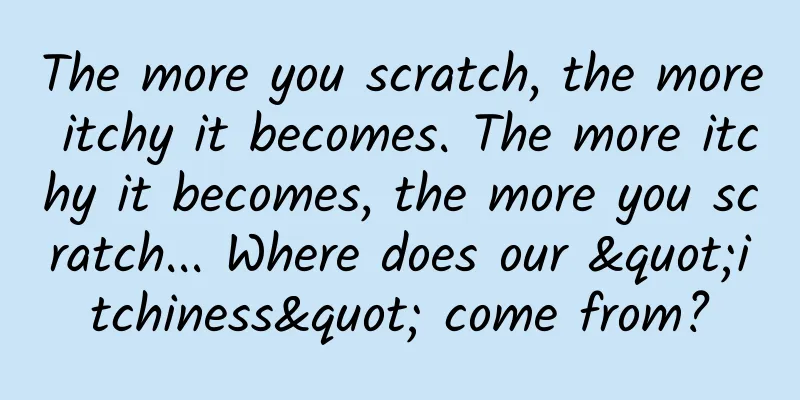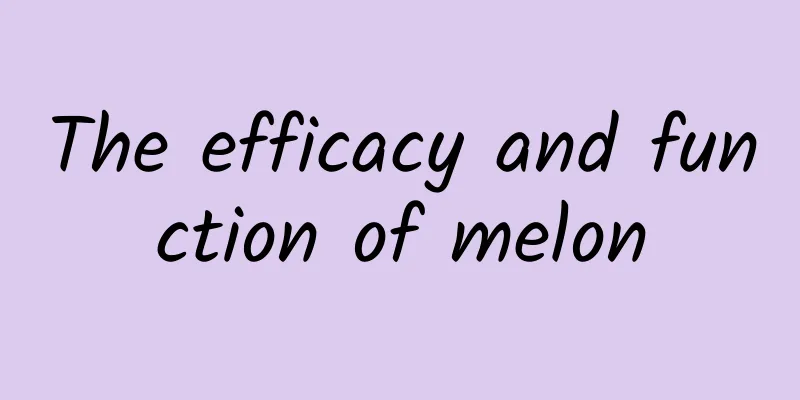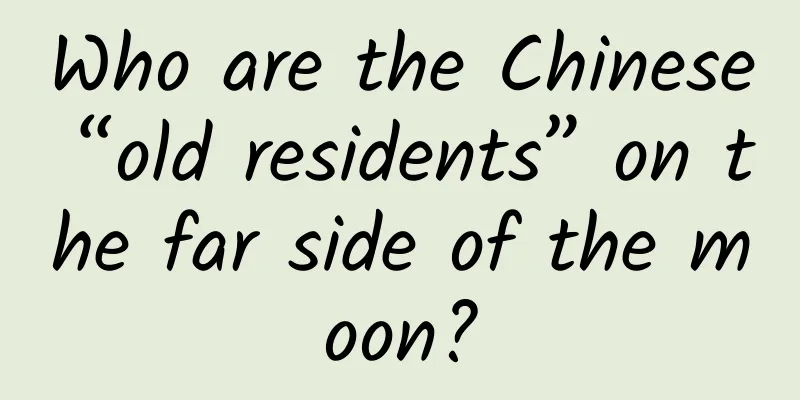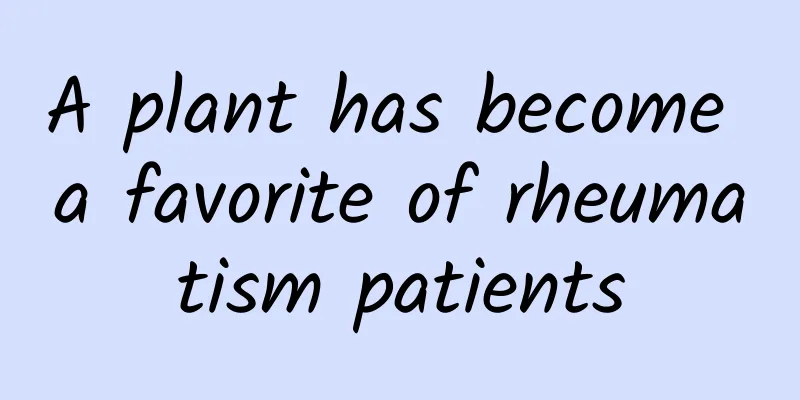The more you scratch, the more itchy it becomes. The more itchy it becomes, the more you scratch... Where does our "itchiness" come from?

|
Today we are going to talk about why you itch. This question seems simple, but it has actually troubled people for a long time. Darwin, the originator of the "theory of evolution", believed that itching is related to a sense of humor because people laugh when they are tickled. Later, people discovered that "itch" and "pain" have many similarities in physiology. For example, both use the same type of nerve cells to transmit signals, and the brain areas activated when itching and pain occur are also very similar. Some people who are born without the sense of pain cannot feel itching. Therefore, for a long time, people believed that itching and pain are the same feeling, and itching is just a slight pain. But these are all wrong. In 2007, researchers at Washington University in St. Louis found that if mice were injected with a substance called "gastrin-releasing peptide," they would scratch. But if the gene that synthesizes "gastrin-releasing peptide" in mice was knocked out, so that they could not synthesize this substance on their own, then no matter how the mice were stimulated, they would no longer scratch. But these mice could feel pain normally. This shows that itch and pain are essentially two different things. When the two transmit signals in the nervous system, they have their own "paths." This study discovered the true nature of "itch" at the cellular and molecular level and understood how itching is formed, which provided a direction for the study of "resolving itch". A woman is tickling herself (picture from Tuchong.com) Scratching is probably the most common way to relieve an itch. Especially when your back is extremely itchy, scratching it with a "Buqiuren" can make you feel refreshed for a moment, but the more you scratch, the more it itches, and the more you scratch, the more you scratch. This is mainly due to hormones. A 2013 study showed that scratching causes a little pain. When the pain receptors are activated, they inhibit the activity of itch-sensitive nerve cells and affect the transmission of "itch" signals, so that you can only feel pain but not itch. However, in 2014, Japanese researchers discovered that when people scratch themselves, the brain releases a substance called "serotonin", which in turn reduces the mild pain caused by scratching. As a result, the itch "takes the upper hand" again, and then you will continue to scratch, relieve the itch through the pain, and then produce new serotonin... The cycle continues, and the result is "the more you scratch, the more itchy it becomes, and the more itchy it becomes, the more you scratch." However, in addition to relieving pain, serotonin can also make people feel happy and joyful. Therefore, when you are tickled, you usually feel very good and comfortable, which may be the only gratifying thing in the whole process. This article is a work supported by Science Popularization China Starry Sky Project Author: The Nutcracker Review: Tao Ning Produced by: China Association for Science and Technology Department of Science Popularization Producer: China Science and Technology Press Co., Ltd., Beijing Zhongke Xinghe Culture Media Co., Ltd. |
<<: The dishes you must not forget to eat in autumn are suitable for weight loss and sugar control
Recommend
What are the effects of Chinese medicine Shegan
Belamcanda chinensis has the effects of clearing ...
Can Mimosa cure bone hyperplasia?
Bone hyperplasia can be said to be a geriatric di...
The first pig heart transplant recipient survived only 60 days! The Lancet published the reasons for the failure. Is there still hope for xenotransplantation?
According to new research published in The Lancet...
The efficacy and function of radix schizonepetae
The seed of the Chinese herbal medicine is 蘘荷子, a...
What are the effects and taboos of ice grass
Ice grass, this is also a common herb. Many peopl...
The efficacy and function of Xinjiang sweet violet
Xinjiang Sweet Violet is a kind of traditional Ch...
The efficacy and function of Euryale ferox leaves
Gorgon leaf is one of the common traditional Chin...
What are the medicinal values of wolfsbane?
There are many flowers in our life. When it comes...
You wouldn’t have thought that the first navigation satellites were used for warfare!
hey, Beidou! China's Beidou, the world's ...
She made a decision that "went against her ancestors' teachings" and then advanced a discipline by decades.
In "He was a doctor, but he changed astronom...
Global poverty seen from space: 19% of human settlements have no light at night
Despite the great success of global poverty reduc...
[Smart Farmers] It’s hot, hot, hot! Here’s a “heat-proof cooling patch” for you
What is heat stroke Heatstroke is a general term ...
Is it possible for "time travel" to become a reality? Don't worry, the premise is...
What is time? It seems to be the greatest mystery...
The efficacy and function of lemongrass
Lemongrass is a common type of traditional Chines...
Can wolfberry be used to soak in water and drink?
Many people don’t know that wolfberry can actuall...









